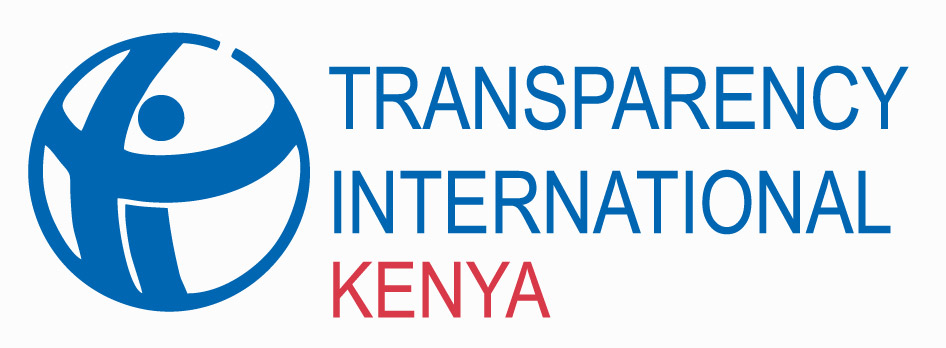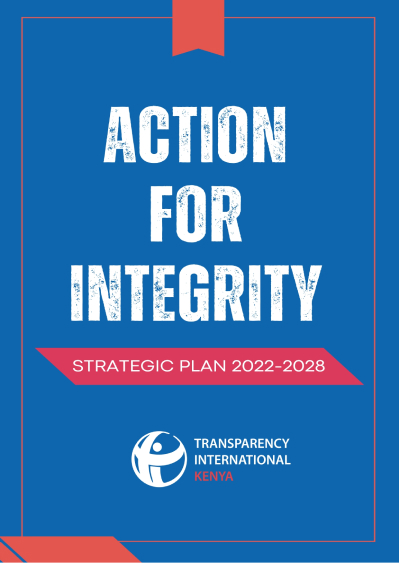Nairobi, Kenya – 31st August 2017: Many Kenyans are forced to pay a bribe to access key services. According to the East Africa Bribery Index (EABI) 2017, Kenyans would pay a bribe to access Police Services (68.8%), Land (55.1%), Judiciary (48%) and Civil Registration Services (45%). The Index reaffirms that bribery is still a key concern in the region with 83% of Kenyans describing the level of corruption as high compared to Uganda at 81%, Rwanda 61% and Tanzania at 44%. The survey recorded a reduction of bribery incidents across the region from majority of the respondents seeking public services. It however identified the Judiciary, Land and the Police Services as institutions most affected by bribery across the region.
The East African Bribery Index
The East African Bribery Index (EABI) is an annual survey that seeks to record bribery experiences of citizens in public service delivery. Since 2010, the survey has been carried out in the five East African countries; Kenya, Uganda, Tanzania, Rwanda and Burundi. In 2017 the survey was not carried out in Burundi due to security concerns. The public services surveyed by the index include security services (the Police), Judiciary, Medical and Health Services, local (county) government services, utilities (water and electricity), registry and licensing services (Civil Registration and Business Licensing) education, Tax and Land Services.
Key Findings
Aggregate Index: The Kenya Police Service was ranked the most bribery prone institution in Kenya with a score of 83 followed by the Judiciary and Land Services at almost half the score; 44 and 41.7 respectively. The Police had an increase of 15.3 points while the Judiciary and Land Services shaved 2.7 and 13.3 points respectively. The least bribery prone institutions ranked were Tax Services (12.9) and Huduma Center (10.7)
Likelihood of Encountering Bribery: Majority of the respondents interacting with the Police (68.8%) and Land Services (55.1%) were asked (implicitly and explicitly) or offered to pay a bribe to access the services they were seeking followed by 48% and 45% interacting with the Judiciary and Civil Registration respectively. The least likelihood was recorded at Tax Services and Huduma Centers as 18.4% and 12.6% of respondents reported being asked (implicitly and explicitly) or offered to pay a bribe.
Prevalence of Bribery: The survey recorded the highest probability of paying a bribe at the Police in Kenya at 41.6% followed by a 23.6% chance at Civil Registration, and 19.6% chance at Land Services. The least probability was recorded at Huduma Centres (7.6%), Educational Institutions (7.9%) and utilities (5.9%). It is worth noting that there was a significant drop in prevalence at the Police and Tax Services by 30.1 percentage points and 22.6 percentage points respectively.
Average Size of Bribe: The highest size of bribe was recorded at the Judiciary at Ksh 14,083 (USD 1351) followed by 12,360 Kenya Shillings (USD 119) paid at Tax Services and 8,956 Kenya Shillings (USD 86) paid at Land Services. The survey indicates an increase in the size of bribe across the board compared to the 2014 survey, save for the Police which recorded a 28% decrease.
Share of ‘National’ Bribe: Bribes paid at the Police accounted for a third of all bribes reported while cumulatively Educational Institutions and the Judiciary accounted for another third. Bribes paid at Tax Services and Huduma Centres accounted for 2% and 0.6% respectively of all bribes paid. There was a 14point decrease in share of bribes paid to the Police. Bribes paid at the Huduma Centres accounted for less than one percent of all the bribes paid.
Projected Change in Level of Corruption: Citing lack of punishment of persons involved in corruption and lack of Government’s commitment in the fight against corruption, 47% of the respondents believed corruption would increase in the coming 12 months, compared to 51% who held a similar view in 2014. 40% of respondents felt that corruption cases were still rampant while 30% felt that no action was being taken against the corrupt. In 2014, majority of the respondents (64%) listed inaction against corrupt persons as the reason they felt that the government was not committed to the fight against corruption.
Anti-Corruption Performance of State and Non-State Actors: The government’s commitment to fight corruption was put to question. The President, Office of the Auditor General and the Ethics and AntiCorruption Commission were rated as average while the Judiciary and legislature scored lowly. These findings further reinforce the citizens’ belief that the government is not doing enough to fight corruption. On the other hand, the media and religious institutions’ performance was rated as good while civil society and citizens were rated as average.
Individual Role in the Fight Against Corruption: When asked about their personal initiative in the fight against corruption in the past 12 months, 55% indicated they had not done anything, with 45% indicating various actions they had undertaken. 26% said they refused to take bribes, 10% discouraged people from taking bribes while only 3% spoke openly against corruption.
Summary Recommendations
Strong Institutions of Governance: The report recommends the need to strengthen the capacity of various institutions of governance to deal with the pervasive problem of corruption. It is imperative that they have a clean bill of health to enhance public confidence in their ability to play their part in combating the vice.
Strong and Consistent Action Against Persons Implicated in Corruption: Citizens strongly recommended the prosecution of individuals implicated in corruption as the most important thing to be done in the fight against corruption. The next step therefore needs to involve the expeditious adjudication of corruption related cases to demonstrate action against persons implicated in corruption.
Integrity Management Mechanisms at Institutional Level: As a first line of dealing with corruption, institutions should be encouraged to set up internal integrity management initiatives. This could include setting up complaint resolution mechanisms for citizens to report any bribery incidents they encounter or service delivery charters outlining the services offered, amount of time taken and fees charged to access the services among other initiatives.
Digitisation of Services: Institutions should consider digitisation of various services to reduce service transaction times as well as cut off chances of bribery at all levels. As the survey indicates, Huduma Centres which offer digitised services, recorded the least bribery incidents.
Next Steps
The East African Bribery Index is a snapshot of corruption in the region. To understand the extent and scope of corruption in an institution, TI national chapters and partners in East Africa can be sought to conduct an institutional integrity study to identify systematic weaknesses that may predispose an institution to corrupt practices. TI national chapters and partners in the five East African countries welcome partnerships with public institutions aimed at comprehensively identifying and strengthening internal systems and procedures to curb corruption.
Note to Editors:
Methodology: The East African Bribery Index 2017 survey was conducted in Burundi, Kenya, Rwanda, Tanzania and Uganda between January and March 2017. Data was collected through face to face interviews with 9,533 respondents in the region including 2,398 respondents in Kenya. The respondents were picked through simple random sampling based on the population size across the various administrative units in each country.
The Transparency International chapters in the region are part of the autonomous chapters of the global Transparency International movement that are all bound by a common vision of a corruption-free world.
Click to read the East African Bribery Index 2017

